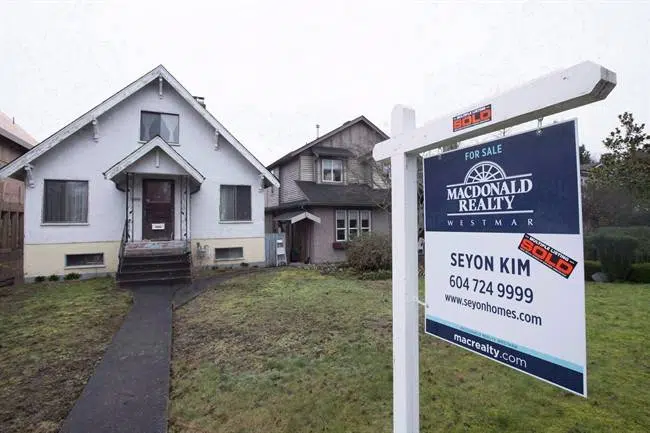
Trudeau warns housing solution in Vancouver could hurt markets elsewhere
VANCOUVER — Prime Minister Justin Trudeau says his government is concerned about the ballooning cost of housing in Vancouver but must ensure that any action it takes doesn’t harm markets elsewhere in the country.
Speaking before a housing roundtable attended by local members of Parliament, developers and experts on Friday, Trudeau said the federal government has to be “very, very thoughtful” about approaching the affordability challenge in a way that allows Vancouver to continue to flourish.
“There’s no question that concerted, thoughtful effort is going to be needed to address the situation but we have to be very wary of unintended consequences.”
He said he has been speaking with British Columbia Premier Christy Clark and local mayors about solutions, and asked for suggestions about where he should be “nudging” provincial and municipal governments to take direct action.
Trudeau did not comment after the closed-door roundtable, but Vancouver Quadra MP Joyce Murray said the meeting is a strong signal that the prime minister is seizing the issue.
“He committed to taking action when we figure out what makes sense from all we heard, but he also was very clear about the urgency of the situation.”
She said Trudeau heard from 25 people with a range of perspectives, including those who represent homeless and low-income people, developers with ideas on increasing supply and others who believe tax policy must be overhauled.
Tom Davidoff, director of the University of British Columbia’s Centre for Urban Economics and Real Estate, said the free market wants to build denser housing in Vancouver, but zoning policies too often limit land use to single-family homes, which are unaffordable for most Canadians.
“It’s an outrageous abuse of power that provides a giant subsidy to rich guys who don’t make a living here,” he said referring to foreign buyers. “The problem is that local homeowners love the status quo and politicians are terrified of them.”
The federal government could pressure mayors by tying transit funding to density, or by forbidding cities from having such restrictive zoning, Davidoff suggested.
He said many in the meeting expressed concern that Canada has become a destination for wealthy foreigners to launder money through real estate. Providing bargain-basement taxes for rich people who don’t live in the country is “nuts,” he added.
“I think the prime minister heard that loud and clear,” he said. “I really do expect federal action both on taxes and on land use.”
Andy Yan, acting director of Simon Fraser University’s City Program, said he hopes Trudeau got the message that housing prices have risen while incomes have stayed flat in Vancouver.
“One of the most powerful things he did was begin to listen. I think that’s one of the first steps, to actually understand the problem before coming up with solutions,” Yan said.
Speaking earlier Friday on CBC Radio, Trudeau said overseas money is playing a role in fuelling superheated markets such as Vancouver, where the average price of a single-family detached home is $1.5 million.
Trudeau said officials are examining Australia’s decision to tax homes owned by foreigners, but warns federal measures to curb offshore ownership in Vancouver or Toronto could harm other regions of the country where overseas investment can be beneficial.
“How do we make sure we are helping people (in Vancouver) in exactly the right and targeted way?” Trudeau said. “That is where the kind of collaboration we haven’t had for 10 years between the federal government and different orders of government is so important to work on together.”
Most Vancouver homeowners know the inflated housing market must be stabilized because the current trajectory “doesn’t have any good outcomes,” he said.
But any action must not completely devalue people whose retirements and equity are tied to their homes, the prime minister said.
Trudeau also toured a new Microsoft development centre in downtown Vancouver with Clark and Vancouver Mayor Gregor Robertson on Friday.
Robertson said afterwards that the province must take the lead on addressing real estate issues. But he said the federal government can take action, including creating incentives to build more rental housing, social housing and co-ops.
Robertson said any measures to deal with the housing affordability crisis could take years to have an effect, but that Vancouver needs decisions soon.
“We’re seeing, certainly, a response from the federal government to the urgency,” he said. “I’m hopeful, given the attention they’re paying to us now, that we’re going to see some movement.”
— Follow @ellekane on Twitter.
Laura Kane, The Canadian Press


